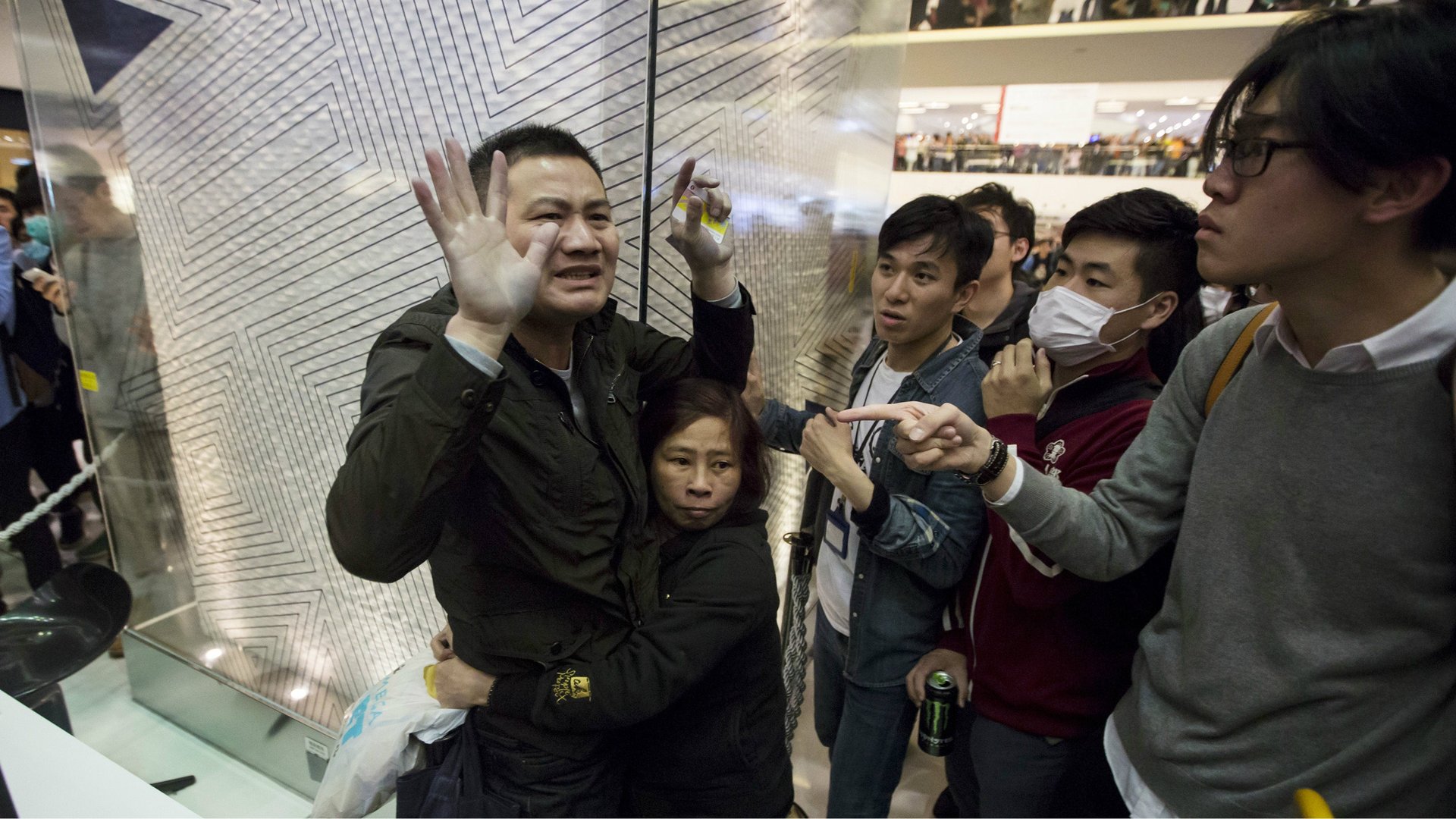Hong Kong is marking the new year with a surge of rage against mainland shoppers
The year of the sheep isn’t likely to make a vocal group of Hong Kong residents much more docile: Over the past few weeks, protesters have flooded some of Hong Kong’s shopping districts to demonstrate against visitors from mainland China taking advantage of lower prices.


The year of the sheep isn’t likely to make a vocal group of Hong Kong residents much more docile: Over the past few weeks, protesters have flooded some of Hong Kong’s shopping districts to demonstrate against visitors from mainland China taking advantage of lower prices.
Police used batons and pepper spray on demonstrators and arrested at least six people who surrounded shoppers from across the border and taunted them with the derogatory Cantonese slur wong chung, or “locusts.” The crowds, estimated at 100 to 200 people, were the city’s most combative protests since the Occupy movement last fall.
The protesters say they are angry that the shoppers, many of whom were stocking up ahead of the Chinese New Year, clog up Hong Kong’s transit system and empty stores of basic necessities like powdered baby formula. Goods are sold without sales tax in Hong Kong, and recently currency movements have made prices even more attractive.
Hong Kong tourism commissioner Cathy Chu denounced the protests, saying, “We condemn and do not accept any violent protests that are law-breaking. Hong Kong has to keep its image as a friendly city.” Some 47 million visitors from the mainland arrived in Hong Kong last year, accounting for 77% of the city’s total visitors.
But the government has also been cracking down on some of those visiting shoppers—especially so-called parallel traders, who are paid to bring back goods to the mainland, where they are illicitly resold. Parallel trading is not technically illegal in Hong Kong, but police arrested some shoppers for violating visa rules against working in Hong Kong, and confiscated two buildings that were being used to store goods for smuggling, in violation of their lease.
In one sign of the pervasiveness of the anti-mainlander sentiment in some parts of the city, a local fruit vendor in the shopping-heavy Yuen Long neighborhood this week posted signs saying he wouldn’t sell to mainlanders, according to local news site EJI Insight.